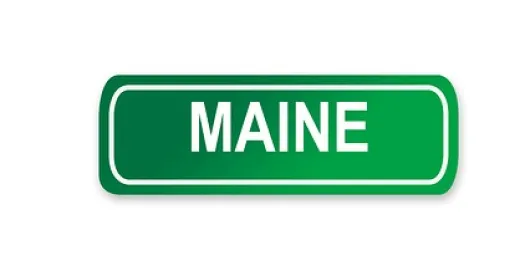As recently noted on this blog, parties can appeal a preliminary injunction order in federal court under 28 U.S.C. § 1292 – but, typically, the same right of appeal is not available under Maine law. As stated in Sanborn v. Sanborn, “an order granting or denying a motion for a preliminary injunction is not a final judgment and generally is not an action from which we will entertain an appeal.”
As the Law Court reaffirmed just a few weeks ago, in Cutting v. Down East Orthopedic Associates, P.A.,
[t]he final judgment rule is a judicially-created doctrine that promotes judicial economy and curtails interruption, delay, duplication and harassment.
Because it is a judicially-created rule, the final judgment rule has various exceptions which might permit the Law Court to address an appeal from a preliminary injunction order. Indeed, the Law Court has, on occasion, reached the merits of an appeal from an order on a motion for preliminary injunction.
One of those cases, Alliance for Retired Americans v. Secretary of State, was highlighted previously on this blog. In that case, plaintiffs challenged various absentee ballot requirements and sought a preliminary injunction. The Superior Court denied the motion for preliminary injunction less than two months before the 2020 elections, and plaintiffs appealed. The Law Court accepted the appeal, reasoning that the “death knell” exception to the final judgment applied. That exception “justifies consideration of issues raised on an interlocutory appeal only if awaiting a final judgment will cause substantial rights of a party to be irreparably lost.” The Law Court reasoned that the exception applied because the claimed injury to plaintiffs’ right to vote could not be repaired after the 2020 election.
The Law Court has also discussed in other cases the circumstances that might allow for appeal. As explained in Facilitators Improving Salmonid Habitat v. Towns of Winterport and Frankfort, the Court is more likely to hear an appeal if the lower court entered a mandatory injunction requiring affirmative action. According to Facilitators and Plourde v. Plourde, immediate appeal may be justifiable where the status quo will not be maintained and the rights of a party will be irreparably lost.
The Law Court has, however, more frequently rejected appeals from preliminary injunction orders. The Law Court’s view, set out in Sanborn, is that
[i]n most instances, the interest of the parties in securing a speedy resolution of the dispute will be best served by proceeding towards resolution on the merits, . . . rather than incurring the costs and delay that are necessarily inherent in any appeal of a denial of a motion for a preliminary injunction.
Accordingly, as the Law Court observed in Dep’t of Envtl. Protection v. Emerson, there is no “per se rule” that preliminary injunctions are excepted from the requirements of the final judgment rule.
The interesting question is whether there should be a per se rule permitting appeals from preliminary injunction orders. Federal courts routinely entertain such appeals without apparent harm stemming from delay. Appeals from preliminary injunction orders may not present the same threat of interruption and harassment as appeals from other interlocutory orders. And, one might argue, the practical effects of a preliminary injunction can be extraordinarily serious even if not irreparable. Under such circumstances, is it the best policy to preclude most appeals of preliminary injunction orders? The contrast between federal and state practice suggests that these questions are worth pondering.



 />i
/>i

